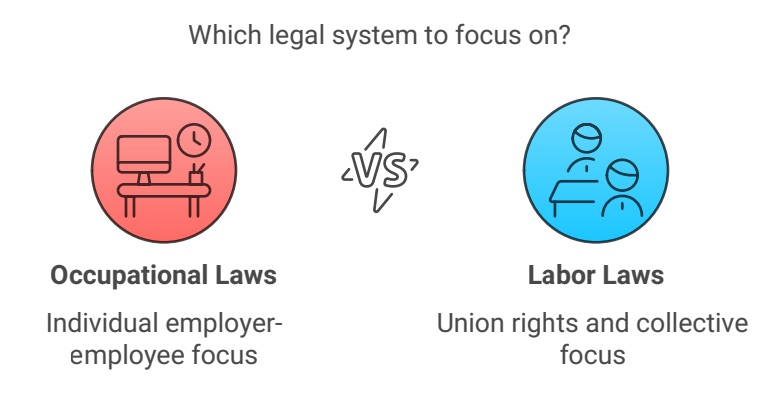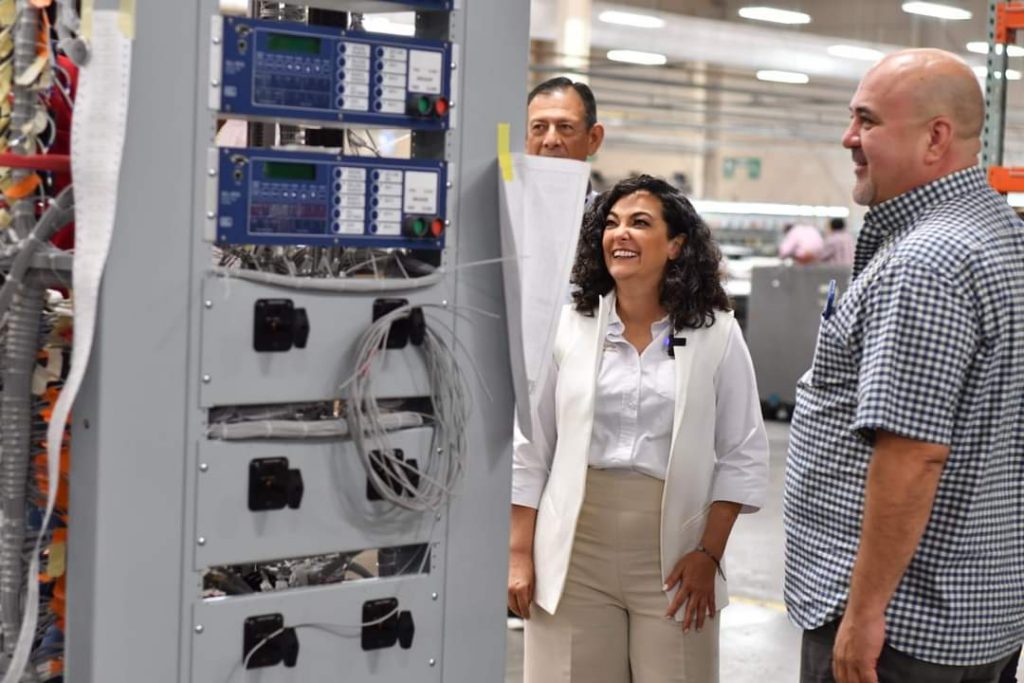Last Updated on June 10, 2025
Labor compliance in Mexico is not just about following the law—it’s a cornerstone of business success. For companies looking to manufacture in Mexico, especially through nearshoring, adhering to local labor regulations is critical. Failure to comply can result in significant fines, penalties, and reputational damage. How does Mexico's labor law differ from that of other countries, and why is it so crucial?
What is Labor Compliance in Mexico?
Labor compliance in Mexico refers to the practice of adhering to labor laws and regulations. These laws are governed primarily by the Mexican Federal Labor Law (Ley Federal del Trabajo). They outline workers' rights related to wages, working hours, health and safety, and social security, among others.
The Difference Between Labor and Employment Laws in Mexico
In order to understand Mexico's labor and employment laws, it is important to understand that they are two separate legal systems. Occupational laws in Mexico cover aspects of one-to-one relationships between employers and employees. However, labor laws protect worker unions' rights to participate equally in setting their working conditions by extending these standards to them as well.

The Role of Labor Compliance in Nearshoring
Companies looking to manufacture in Mexico often view nearshoring as an attractive strategy. But, labor compliance is a key factor in ensuring a smooth operation. Mexico’s competitive labor market offers many advantages, but businesses must understand that non-compliance can jeopardize their entire operation.
Imagine setting up a factory only to have it shut down because of inadequate wage payments or unsafe working conditions. It’s like building a house on a shaky foundation-it won't last.
Not surprisingly, nearshoring has introduced both challenges and opportunities for law firms in Mexico. Most of the businesses that come to Mexico to embrace nearshoring are foreign companies that in some cases are not completely aware of the country’s legislation, culture, and business dynamics - Reuters
Avoiding Fines and Penalties
Non-compliance has severe consequences. Companies may face steep fines, penalties, and even shutdowns if they fail to follow labor laws. These enforcements are written into the USMCA trade agreement. Penalties can range from a few thousand pesos to millions, depending on the violation. In extreme cases, criminal liability can be involved.
Why risk losing all Mexico's benefits as a manufacturing hub by not adhering to these regulations? It’s like driving without insurance—one mistake can cost you far more than you ever expected.
Ensuring Health and Safety Standards
One area where companies often fall short is health and safety regulations. Mexico's laws mandate strict workplace safety standards to protect workers from harm. Failure to adhere to these rules can result in injuries or fatalities, leading to hefty fines and legal battles.
Would you want to run a facility where workers feel unsafe? Not only does this affect your workforce’s morale, but it also tarnishes your company’s reputation. Customers and partners value companies that prioritize worker welfare.
Meeting Wage and Benefit Obligations
Another key aspect of labor compliance in Mexico is ensuring workers are paid fairly and on time. Under the law, employees are entitled to a fair wage, holiday pay, and other benefits such as social security contributions. Non-compliance in this area can lead to back payments, interest, and fines.
Think of it like paying your bills late—you’ll be charged penalties, and it could affect your creditworthiness. Similarly, ignoring wage laws can damage your business’s credibility in the marketplace.
A substantial and innovative update in USMCA is the new methods of monitoring and dispute resolution–the Rapid Response Mechanism (RRM). The RRM is the strictest and most binding tool for enforcing labor rights ever included in a trade agreement. The RRM allows the U.S. and Canadian governments to raise concerns about compliance with the labor rights in the USMCA. The United States and Canadian governments can use the RRM to request the Mexican government to initiate investigations to determine if workers were denied of freedom of association and collective bargaining rights. - Brookings Institute
The Role of Inspections and Audits
Mexico’s Ministry of Labor regularly inspects and audits compliance. These are not random but often triggered by complaints, accidents, or even industry-wide sweeps. Inspectors will look at a wide range of factors, from wage payments to health and safety protocols. Businesses that pass these inspections earn a positive reputation, while those that don't face public scrutiny and penalties.

Conclusion: Labor Compliance as a Key to Success
Labor compliance in Mexico is more than just a legal obligation—it’s an integral part of running a successful business. By meeting labor standards, companies avoid costly fines and penalties while building a reputation as responsible employers. For businesses that want to manufacture in Mexico, adhering to labor laws ensures long-term success.
Ignoring compliance is like cutting corners during construction—it might seem easy at first, but the long-term risks far outweigh the benefits.
FAQ on The Importance of Labor Compliance in Mexico: Avoiding Fines and Penalties
1. What are the penalties for non-compliance with labor laws in Mexico?
Penalties can range from fines of a few thousand pesos to millions, depending on the violation. Severe breaches, like unsafe working conditions, can even result in business shutdowns.
2. How often are labor inspections conducted in Mexico?
Labor inspections are regular, especially when triggered by complaints, accidents, or government initiatives to review specific industries. They can be unannounced.
3. Why is labor compliance important for nearshoring in Mexico?
Labor compliance is crucial because it ensures that companies can operate without interruptions, avoid fines, and maintain a strong reputation. It is a critical factor for success in the competitive Mexican labor market.
4. What areas are most commonly inspected by Mexican labor authorities?
Commonly inspected areas include wage payments, health and safety standards, and social security contributions. These are key factors in ensuring worker welfare.
5. What can businesses do to ensure labor compliance in Mexico?
Companies should invest in understanding local labor laws, conduct regular internal audits, and maintain open communication with labor authorities to ensure compliance at all times.
Explore More: Discover Related Blog Posts
Expand your knowledge and delve deeper into more information about Mexico Labor with our curated collection of related blog posts.
- Mexico Rewards Manufacturing Companies That Commit: Here’s Why
- Can Moving Manufacturing to Mexico Really Be Turnkey? Here’s What You Need to Know
- 3 Hidden Costs You’re Avoiding by Manufacturing in Mexico (And Why It Matters)
- Setup Process for Manufacturing in Mexico: What You Should Know About Timelines, Permits, and Common Pitfalls
- How U.S. Tariffs Are Reshaping Mexico’s Manufacturing Outlook
- Car Brands Made in Mexico: A Look at Global Manufacturing Powerhouses
- 4 Factors That Affect Your Manufacturing Costs in Mexico (And How to Stay Ahead)
- Americans Say They Want More U.S. Factory Jobs—So Why Don’t They Want to Work in Them?
About NovaLink
As a manufacturer in Mexico, NovaLink employs a unique approach that transcends the traditional model of shelter production. More than just the location of your manufacturing, we would like to become a partner in your manufacturing in Mexico. You will be able to relocate or initiate manufacturing for your company in Mexico in a low-cost labor environment with very little delay or up-front costs. Find out how we can help you by handling the manufacturing process.
There are NovaLink facilities in the border cities of Brownsville, Texas, Matamoros, Mexico, and Saltillo, Mexico.